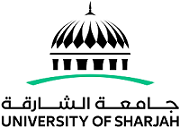The 14-Kilodalton Human Growth Hormone Fragment a Potent Inhibitor of Angiogenesis and Tumor Metastasis =جزء هرمون النمو البشري الذي يبلغ طوله 14 كيلودالتون ) 14kDa hGH ( كمثبط قوي لتكوين الأوعية الدموية ونقائل الورم /
Linked Agent
Bajou, Khalid,, Thesis advisor
Date Issued
2023
Language
English
Thesis Type
Thesis
Abstract
Metastasis is the primary cause of elevated mortality rates in patients with cancer, as it constitutes 90% of cancer-associated deaths. The process of angiogenesis plays a critical role in the development of metastasis by enabling the formation of blood vessels that provide essential nutrients and oxygen to support the growth and dissemination of tumor cells. Consequently, extensive endeavors have been made to target angiogenesis and identify novel antiangiogenic agents. As such, antiangiogenic therapy continues to be an indispensable approach in cancer therapy. The 14-kilodalton human growth hormone (14kDa hGH) N-terminal fragment derived from the proteolytic cleavage of its full-length counterpart has been shown to sustain antiangiogenic potentials. This study investigated the antitumoral and antimetastatic effects of 14kDa hGH on B16-F10 murine melanoma cells. B16-F10 murine melanoma cells transfected with 14kDa hGH expression vectors showed a significant reduction in cellular proliferation and migration associated with an increase in cell apoptosis in vitro. In vivo, 14kDa hGH mitigated tumor growth and metastasis of B16-F10 cells and was associated with a significant reduction in tumor angiogenesis. Similarly, 14kDa hGH expression reduced Human Brain Microvascular Endothelial (HBME) cell proliferation, migration, and tube formation abilities and triggered apoptosis in vitro. The antiangiogenic effects of 14kDa hGH on HBME cells were abolished when we stably downregulated plasminogen activator inhibitor-1 (PAI-1) expression in vitro. In this study, we showed the potential anticancer role of 14kDa hGH, its ability to inhibit primary tumor growth and metastasis establishment, and the possible involvement of PAI-1 in promoting its antiangiogenic effects. Therefore, these results suggest that the 14kDa hGH fragment can be used as a therapeutic molecule in inhibiting angiogenesis and cancer progression.
Note
A Dissertation Submitted in Partial Fulfilment of the Requirements for the Degree of Master of Science in Biotechnology, Department of Applied Biology, College of Sciences, University of Sharjah, May, 2023.
Member of
Category
Theses
Library of Congress Classification
QZ203 SH527f 2023
Local Identifier
b16376900

